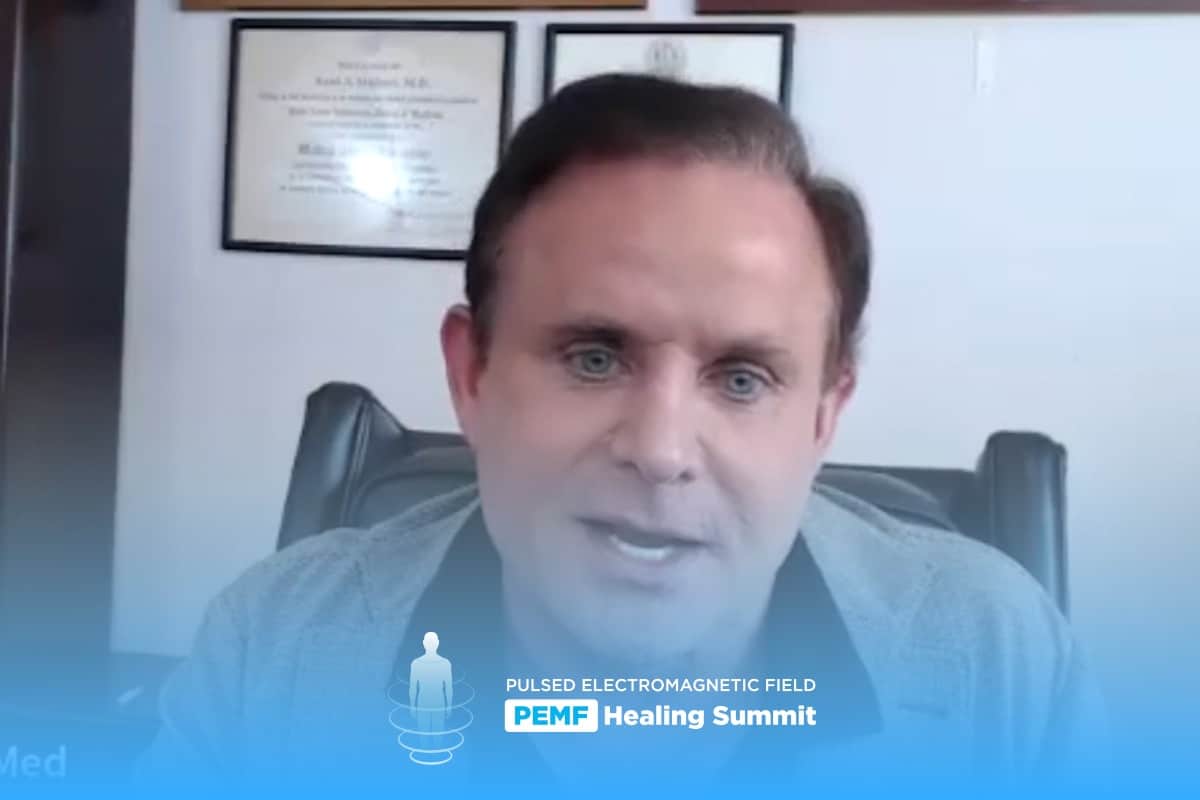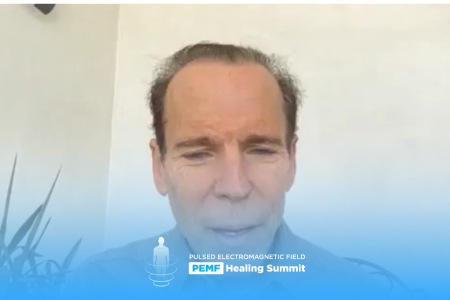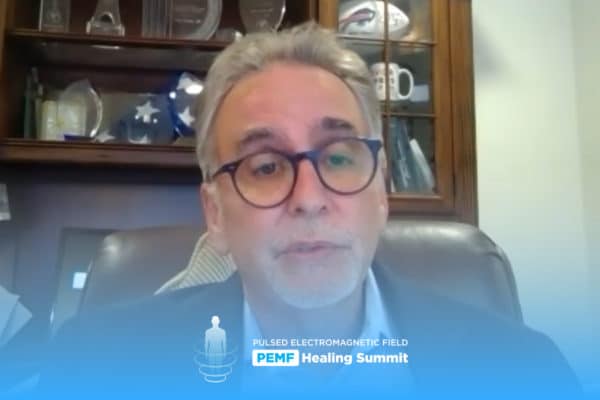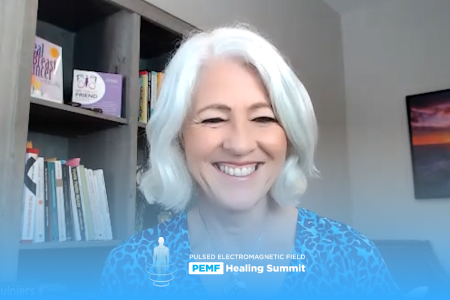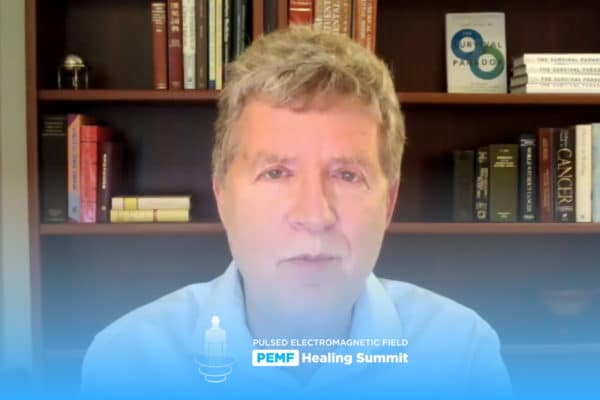Join the discussion below
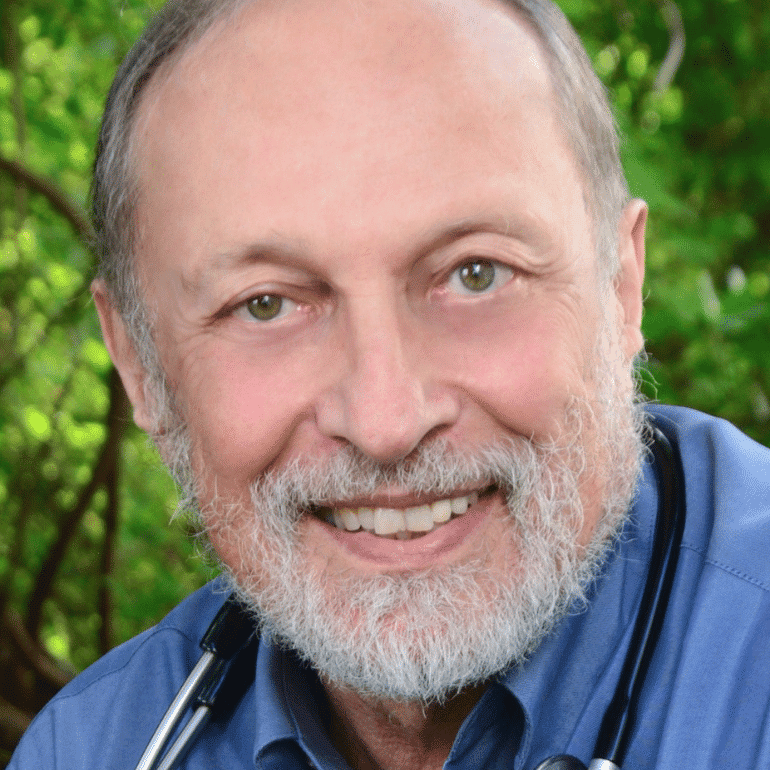
William Pawluk, MD, MSc, author of “Supercharge Your Health with PEMF therapy”, was recently a holistic doctor near Baltimore, MD. Previous academic positions at Johns Hopkins and University of Maryland. Training: acupuncture, homeopathy, hypnosis, energy medicine, nutrition and bodywork. Considered the foremost authority on the practical use of Pulsed Electromagnetic... Read More
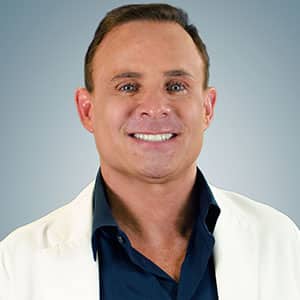
Kent Holtorf, MD is the medical director of the Holtorf Medical Group (www.HoltorfMed.com) and the founder and medical director of the non-profit National Academy of Hypothyroidism (NAH) (www.NAHypothyroidism.org), which is dedicated to the dissemination of new information to doctors and patients on the diagnosis and treatment of hypothyroidism. He is... Read More
- Both PEMF therapy and peptides are effective for an extremely wide range of conditions and are extremely safe and have significant synergistic effects. Whether a person suffers from an acute condition or a chronic illness both PEMF and peptides can be miracle treatments when nothing else has worked. The combination often results in even more dramatic results.
William Pawluk, M.D., MSc
Hi Dr. Pawluk here. This episode of the PEMF Healing Summit is about PEMFs and peptides. The title is called, “A Match Made in Heaven for the Treatment of Everything, from Severe Illness, to Nagging Injuries, to Anti-aging, and Rejuvenation.” Now there’s a title. And I’m not gonna tell you who he is, because he can do a much better job than I can. So Kent, if you don’t mind, please tell us about yourself.
Kent Holtorf, M.D.
But I think I’m kind of like the standard, so called where’s we have with this alternative, I hate that term, functional medicine, integrative, whatever, is I was a very close-minded standard physician. And started getting very sick through medical school, through residency, and going to the doctors there. And they’re like, “Oh, you’re stressed, you’re like depressed.” I’m like, “No, I’m not, I can’t function.” And “Oh, here’s some antidepressants.” Which didn’t work, of course, that horrible. And I’m like, I don’t think I can practice medicine. And so I went into, I figured, okay, what can I maybe do? ‘Cause talking to a patient was so exhausting. Like any noise, any just interaction would kill me, and just sweating constantly. And so I went into anesthesia figuring, okay, they’re asleep, I can deal with them, right. But I forgot about getting up early, you know? And it’s no offense to anesthesiologists, but it’s pretty mindless, you know? But so then people were talking about some alternative conferences, and I’m like, “Oh, I can’t let anyone know that I’m going.” And so I go and I’m like listening. I’m like, “This is more evidence based than the crap they’re teaching me in residency.” And I look at all my hormones, they’re like the lowest 3%, lowest 5%. Oh, you’re fine, you’re fine.
Oh well, yeah, you have no immune system, but it’s look at just it’s in the normal range, you know? And so went on, basically all the hormones, testosterone, and growth hormone. T3 was a savior for me, a little cortisol. Like I did a review article, HP access dysfunction in chronic fatigue center of fibromyalgia, and found that, you know, 97% of those patients have adrenal dysfunction. The fibromyalgia patients just have it in hypothalamus and the chronic fatigue have it in the pituitary, and the pain centers in the hypothalamus but… And that’s sort of like, my big focus was fixing people with hormones. So I took over, went and said, “I’m getting outta anesthesia, I hate this.” And went into family practice, took over a family practice, and immediately converted to cash. And people think were like, “Oh, greedy.” It has nothing to do with that. And I could not stand for the short period of time I took insurance. I’m like, this is crazy. Like I have to see a patient like every eight minutes. I can’t say hi in eight minutes. And just really doing hormone optimization, T3, which is kinda my passionate. No one thing fixes anything, but when you’re early on, you’ll find something that works. And sort of the hormone optimization, thyroid optimization clinic, and people were just lining up. And then we switched it over to cash, and then moved out to California. And I want to join the Independent Doctor’s Association, who, they’re trying to not take cash. They take like 5% cash, 10%.
And I said, “I’m taking no insurance.” We’re like, “We’re not letting you in. You can’t do that, that’s ridiculous.” And we’ve been doing it ever since. You give a better service, and you’re gonna get the patients. So basically, I started feeling so much better doing this whole, kind of holistic, fixing my gut, doing a lot of IVs, ozone, you know, again, thyroid, testosterone, just basically kind of doing everything, and felt fine. But then went through a nasty divorce. She hired Gloria Allred as a consultant, and then got in a fight with her ’cause she wasn’t tough enough. But anyways, so that was brutal. The phone would ring and I would just freak out, you know, just sweating. And then I went into heart failure. I could not walk up the stairs. I couldn’t stand up straight, and I’m like, “I cannot live like this.” I go to a cardiologist and he is like, “There’s a lot of damage, a lot of scar tissue. And maybe in 10 years you can get 10% better.” I’m like, “What?”
William Pawluk, M.D., MSc
How old were you at the time?
Kent Holtorf, M.D.
So this was probably eight years ago. Yeah, and so I go, “Well, either I’m gonna…” Every Halloween was just gonna off myself because… And I knew I had Lyme. My blood was so thick, you could not take it out with a 14-gauge catheter. It was just like motor oil, right? And so I’m just, you know, in your panic, you can’t get anything done, you can’t sleep, you can’t stand up, you can’t lay down, you got restless legs, I was taking a hundred showers a day. But it’s miserable. And so I said, “Well, I’m just gonna go around the country and just find every treatment I can, and go to other countries.” And found a lot of great treatments, a lot of things work. And really found, you know, looking back, it’s the things that modulate the immune system. And you look at ozone, with the peptides when I was in Europe, I didn’t think they’d do anything. And then three days later, probably about five days later, I just walked up the stairs. And I’m like, “This is really weird.” And I didn’t expect that to do it. And I later went down to Mexico and did like plasmapheresis and apheresis with dendritic cells that we would stimulate to Lyme antigens. Then we tried to freeze it, which we screwed it up. But I was feeling better, I could function. And then so really started just bringing, so I found peptides, but I couldn’t use them on my patients. So it wasn’t allowed. And then about a couple years later it was okay, and it just transformed our practice. I mean, it is. And every doctor we train at our 22 centers that we opened up, and then we did nine franchises. First one by a franchise was a hospital. And it turns out they went crazy and they said, “We weren’t practicing evidence-based medicine.” So they go, “You gotta get out here.”
William Pawluk, M.D., MSc
The hospital said that.
Kent Holtorf, M.D.
Said that. And I was stupid, and thought that’s what really they thought. So I go out there and show that we’re practicing evidence-based medicine, they are not. And which was the wrong thing to do, because they were just, it turned out at the end they’re like, “You think you’re better than us.” But it was a small town, two hours outside of Kansas City. And a guy who lived there told me when we started, he goes, “They won’t let you in.” I’m like, “What are you talking about? They love us.” And so I go and immediately the rheumatologist, as soon as I started speaking, just stands up and goes, “I’m not listening this bullshit.” And walks out. And then the cardiologist is playing the Fox News piece where I said, I wouldn’t give my kid a Trino-1 vaccine. And the endocrinologist was so pissed because he got 24 calls about reverse T3, which he didn’t believe in, you know? And so they said, “You’re going to the CEO. He is just gonna… oh my God, he is so pissed.” I’m like, “Okay, great, I’ll go talk to him.” But oh yeah, and then the OB’s arguing, like holding up her societal guidelines. And I’m like, “Okay, where do societal guidelines rank on the list of evidence-based, the strength of evidence based medicine?” It’s last. It’s after anecdotal cases, because they’re wrong, and they don’t change it for 20 years. So it’s nuts. So I go to the CEO and he is like, he goes, “Listen, my wife has been going to these bozos for the last decade and no one’s gotten her better, two visits at your office and she’s dramatically better. I’ll take care of the doctors.” I’m like, “You won’t, you won’t, there’s no way. Let’s just change the name, da, da, da.” And I go over to this pediatric kinda satellite, and he was into it. He’s like, “This is really neat.” And then the nurse goes, “You got an emergency call.” He’s like, “No, no, I’m busy.” He goes, “No, you have to take this call.” So it was the OB telling him not to talk to me, you know? And long story short, they said, “We can’t have you in here.” But it just goes to show that they don’t want patients better. And this was, now I get it ’cause I see it all the time, is that if you’re, let’s say a doctor’s beating on a patient for 10 years, can’t get them better. They come to you, and you get them better and send them back. Do you think they’re happy? No, no, no. Yeah, it’s a shame. And I used to be very mad at doctors, but they’re in a bad spot. We’ve given it up to insurance companies and big pharma.
William Pawluk, M.D., MSc
And administrations of different kinds.
Kent Holtorf, M.D.
Yep, yep. And it’s funny, I did a paper on how to fix healthcare, healthcare reform. I spent a lot of time on it, but I had to get it to someone big. I couldn’t get the people I wanted, and someone knew speaker of the house, Ryan. So we got it to him, he sent the paper saying, I just sign saying I will never quote him and blah, blah. So basically he sends back a short letter. It says, “Well, your proposal is very interesting, but quote, do you know how many people are slurping off the trough of the healthcare industrial machine?
William Pawluk, M.D., MSc
Complex, yes.
Kent Holtorf, M.D.
Yeah. And it’s true. Yeah, big pharma owns the world, man.
William Pawluk, M.D., MSc
Yeah, they started a long time ago at the turn of the 20th century.
Kent Holtorf, M.D.
Yeah, and it’s just like we were talking why. With all the studies on PEMF, why isn’t everyone using it? And how many people have been harmed by PEMF? But the doctors are like, “Oh, here’s 50 studies showing what you’re doing isn’t great, we have a better therapy.” No, no, I don’t believe in those studies.
William Pawluk, M.D., MSc
Yeah, they don’t, it doesn’t matter how much evidence you present. I’ve made this quote multiple times during the summit that I’ve said, “A mind forced to change its will is of the same opinion still.”
Kent Holtorf, M.D.
And I have to remember that ’cause I always get into like, “I’m better, I’m way better.” You think you can overpower them with evidence, it doesn’t work.
William Pawluk, M.D., MSc
No, they have to be open to it. And if you’re threatening their paradigm, if you’re threatening their credibility, it’s not gonna work. So I decided a long time ago, just like you have, actually, I dunno if you’re still tilting at the windmill. but I decided a long time ago… I learned this actually when I was a medical director of managed care. And I knew what managed care was doing to try to prevent certain things from happening, including things like paying for acupuncture. And I knew that the only way to beat that system is to do like something like we’re doing with the summit, is to go directly to the public. Because COVID, I think COVID has done us a favor. People had to get healthcare on their own.
Kent Holtorf, M.D.
Yeah, they realized that standard government, which they put on a pedestal, they got it so wrong. You can’t believe how wrong they got it, but there’s a reason for it.
William Pawluk, M.D., MSc
There’s a big reason for it.
Kent Holtorf, M.D.
Yeah, yeah.
William Pawluk, M.D., MSc
So anyway, so you learned through your own journey, right? Through your own journey, that you had to design your own healthcare approach, right?
Kent Holtorf, M.D.
Right, and that’s what people have to do. They’re starting to realize that as you’re saying. But so many people and I’ve learned too it’s like, and so many people are sick, they’re stressed out of their mind. Like I have to carry lab slips when I go to a party. And what I found is that I don’t even push it. They have to beg, they have to go do something, act, because 90% of them won’t do any. My doctors, like whether they talk to me like, “Oh, I’m so sick this.” I’m like, “Well, I think this is…” “My doctor said I don’t have that.” Well, how’s that working for you? And they won’t change.
William Pawluk, M.D., MSc
Well, when it comes to PEMF therapy, patients would often tell me, “Well, I’m gonna go talk to my doctor about it.” So I tell you, “Go ahead and do that. I’ll tell you what, I’ll loan you my book.”
Kent Holtorf, M.D.
Yeah, he knows nothing.
William Pawluk, M.D., MSc
Yeah.
Kent Holtorf, M.D.
He knows less than nothing about it.
William Pawluk, M.D., MSc
I said, “Don’t even bother, if you want me to talk to your doctor, I’ll be glad to if they’re willing to give me a call, we can have that discussion.”
Kent Holtorf, M.D.
There you go, there you go.
William Pawluk, M.D., MSc
And of course, they don’t, they never do. So my patients learned over time, there’s no point talking to your doctor about it.
Kent Holtorf, M.D.
Yep, yep.
William Pawluk, M.D., MSc
Now we can give them the science, or we can give them the rationale for why we do what we do. We can support it easily enough. And of course the results talk for themselves, right?
Kent Holtorf, M.D.
Yeah, like I had a patient, and he said he to the endocrinologist showed him my, I had a review article, and he goes, “You gotta read this. This is this… Oh my God, it’s changed my life.” And he goes, “This is a terrible study, I’ve read it.” And he goes, “No, you haven’t, it isn’t out yet.” And he just threw it in the trash and said, “I don’t have to read it.”
William Pawluk, M.D., MSc
‘Cause I know.
Kent Holtorf, M.D.
Yep, yep.
William Pawluk, M.D., MSc
So your journey taught you that you have to put together your own healthcare program. So what you said, peptides, you said hormones, and what else did you include in your program?
Kent Holtorf, M.D.
Yeah, I mean, there’s just, yeah, there is so many things in terms of… And we did do PEMF, but I was originally taught that it was just for soft tissue, right? But a lot of IV therapies, yeah, basically, hormones. We were doing high dose antibiotics, like for chronic Lyme and these, I found it doesn’t work. We use so little antibiotics now because the problem is the immune system. And when you have basically two sides in your immune system, you get like, then it’s oversimplification. Like anything what the immune system is. Th1 gets stuff inside your cell, Th2 gets stuff outside your cell. And then with any aging, your thymus involutes with stress, toxins, chronic infection, autoimmune disease. You basically, it starts going like this. So you can’t fight intercellular infections or cancer, but you have all this inflammation. So and then that causes mitochondrial dysfunction. Okay, yeah, body goes in the cell danger response, which is kind of an isolated part of that. You get pineal hypothalamic pituitary hormone dysfunction, you get hypercoagulation, you get basically gastrointestinal dysfunction, your sleep center’s on fire, so you can’t get sleep. And it just goes around and around and around, you can’t detoxify because there’s no cellular energy. And it everything’s, you know, and then you get reactivating infections, that now make it worse. So kind of what ’cause, it becomes chicken or the egg. But you gotta unwind all these different parts. So you really have to be… The problem is too in medicine. You got your gastroenterologist, you got your cardiologist, you got your neurologist. They don’t wanna think outside that, and you can’t. It happens to be hooked together.
William Pawluk, M.D., MSc
Yeah, I had a patient one time to go to your point, who was put on statins. And he went to a mall, forgot who he was, forgot where he was, forgot why he was there. He had global amnesia. And it was the statins. He stopped the statins, and his memory problems basically went away.
Kent Holtorf, M.D.
Now, what if that happened after he did PEMF?
William Pawluk, M.D., MSc
Yes, what if that global amnesia happened after he did PEMF? Is that what you’re saying?
Kent Holtorf, M.D.
That would be all over the news.
William Pawluk, M.D., MSc
Totally.
Kent Holtorf, M.D.
Yeah, I like Robins, he tells patients first visit. He does like intravenous ozone gas and he says, “I can take my prescription pad out and kill you. Nothing will happen to me. If I harm you with this gas, I’m going to jail.” So yeah, we don’t have the luxury of saying, “Well, this is what the side effects say.” But the nice thing is the things that we’re talking about have lower side effects than anything I’ve ever seen.
William Pawluk, M.D., MSc
Right. Yeah, when I made the switch from conventional medicine to alternative medicine, people were walking out of the office smiling.
Kent Holtorf, M.D.
Yeah.
William Pawluk, M.D., MSc
They were functionally better than they ever were when I did conventional medicine.
Kent Holtorf, M.D.
How many people walk out of a standard doctor’s office smiling?
William Pawluk, M.D., MSc
Smiling?
Kent Holtorf, M.D.
Yeah.
William Pawluk, M.D., MSc
One of the things I learned when I learned acupuncture was that people did leave the office smiling. Or at least…
Kent Holtorf, M.D.
Okay.
William Pawluk, M.D., MSc
Or at least they had a glaze.
Kent Holtorf, M.D.
Yeah, yeah. But it’s scary. You gotta be your own health advocate now. You can’t go by what your doctor says.
William Pawluk, M.D., MSc
Did you discover peptides first and then magnetic field therapy, or what was the sequencing there?
Kent Holtorf, M.D.
No, we had PEMF first. But we were very much under utilizing it, because the guy who sold it to us said, “It’s for joints, and soft tissue, and that.”
William Pawluk, M.D., MSc
Okay, yeah, and we still get some of that, and that’s one of the reasons I wrote the book, “Power Tools for Health”, is that it’s like way beyond that. There are people who still say it’s not for healing.
Kent Holtorf, M.D.
What’s it for?
William Pawluk, M.D., MSc
It’s for making you feel better. It’s for helping you with your aches and pains, but it’s not gonna heal you. So the high intensity systems, now you have a high intensity magnetic system, right? Your high intensity magnetic system will cause muscle contractions, right?
Kent Holtorf, M.D.
Yeah.
William Pawluk, M.D., MSc
So you have people out there in the community who are selling PEMF devices that are mattress pad systems. They can cost $6,000 for one of those machines, $6,000. And then they’re telling everybody, “Don’t get high intensity, it’ll hurt you.” But the same people who are selling that pitch, know nothing about magnetic field therapy.
Kent Holtorf, M.D.
It’s easier that way.
William Pawluk, M.D., MSc
There’s those people.
Kent Holtorf, M.D.
You can sell it easier.
William Pawluk, M.D., MSc
You don’t have to be rational, you have to be scientific. So we know that’s not true because actually now we have FDA approved machines, for treatment-resistant depression, for Parkinson’s, for OCD, that basically are treating the brain at very high intensities.
Kent Holtorf, M.D.
It’s kinda like with COVID and vitamin D, why aren’t we giving everyone vitamin D? You know, it’s sense. And no, let’s go with the vaccine route. It’s just…
William Pawluk, M.D., MSc
Oh, that’s a whole, that’s a whole nother ballgame, isn’t it?
Kent Holtorf, M.D.
Yeah, I won’t, black helicopters are coming.
William Pawluk, M.D., MSc
So you started with high intensity magnetic fields. Why did you incorporate that into your work?
Kent Holtorf, M.D.
Because I was at a conference and I said, “All right, lemme check this weird pulsating thing out.” And I don’t think I’d had anyone lecture on it yet. And I had terrible back spasms, you know? And so I did it. And I’m like… And I don’t like massages, they kinda freak me. ‘Cause I had allodynia, where if anyone touched my skin I would just… And so massages have never been my thing. And then I’m like, “Oh my God, I can move my neck.” Like quickly, within the minute, two minutes. It was like, “Wait a minute. What was the name of this damn thing?” So with that, so I had to get it and share it. And then so you start, that’s when you start doing research. Now, I got it. And I am still blown away at all the studies, hundreds and hundreds and hundreds of studies all showing this. It’s just crazy. But I have a whole piece on our nonprofit, the National Academy of Hypothyroidism and Integrative Sciences, NAhypothyroidism.org, which I started just to show that the way we’re treating thyroids country is just wrong, right? And I wrote two review articles, 500 references each. The question, you probably get this all the time too, if this is so great, why doesn’t my doctor know about it? And so it answers that question. So if you go to NAHypothyroidism.org, if you’re wondering about that, read that and it will tell you.
William Pawluk, M.D., MSc
Yeah, we see this. I used to see it all the time at practice as well. I do, as you said, a reverse T3, or I do a 3T3, 3T4, TSH. I always adored to the TSH. ‘Cause it’s all about the 3T3 and the 3T4.
Kent Holtorf, M.D.
Oh, I get calls, “Your patient’s hyperthyroid.” Well, their pulse is 40. Their base metabolic rate is 20% low. They’re freezing cold and they’re gaining three pounds a week. Is that hyper metabolic?
William Pawluk, M.D., MSc
Yeah, right?
Kent Holtorf, M.D.
It’s like no sense.
William Pawluk, M.D., MSc
So anyway, the device you had, I think we talked about this we started, that probably is the PEMF 120, which is one of the earliest devices available that were higher intensity. The history behind that is the guy that developed it built the first wind farm in North America.
Kent Holtorf, M.D.
Really?
William Pawluk, M.D., MSc
In California, first wind farm. And he was approached by somebody who imported a device from Greece called the papimi, which is basically a horrible machine. And people were importing it into the US, and doing studies on it. And they actually had IRB, an institutional review board, approval from the FDA. Unfortunately, the doctors are too gung ho, and they started making outrageous claims that were publicly visible about curing cancer. All of a sudden, the FDA swooped in and collected all the machines, confiscated the machines.
Kent Holtorf, M.D.
They protect their turf, man.
William Pawluk, M.D., MSc
So the guy that brought them into the US from Greece, went to this guy that had the wind farm, who is a physicist and he said, “Can you duplicate this machine, or improve on it? Which he did. He actually improved on it dramatically, huge improvement. And that’s the beginning of a whole series of machines that he’s developed at high intensity.
Kent Holtorf, M.D.
I didn’t know that, that’s cool.
William Pawluk, M.D., MSc
And of course, people are not be able to wiser now, they don’t make those kinds of outrageous claims. And having being part of an IRB is a two edged sword, and it cuts bad both ways.
Kent Holtorf, M.D.
Yeah, now, but if you’re doing it during the… If you’re using it during the course of your treatment, you technically don’t need an IRB but…
William Pawluk, M.D., MSc
Well, actually, as an MD, as a physician, you can do whatever you want in your practice, you just can’t do it across state borders because of the FTC. And within your practice as long as you tell people this is an alternative therapy that’s not supported by science in the community in general, which is also not right.
Kent Holtorf, M.D.
Some people don’t know about it, but…
William Pawluk, M.D., MSc
Unfortunately, as you said before, it’s extraordinarily safe. Even not used properly, but if used properly, it’s amazingly safe.
Kent Holtorf, M.D.
Yeah, even if someone was just nuts, I don’t see how they could harm them. Like would they hold it there, and their heads… Well, I mean, it’s just like, oh, a stove’s so dangerous. Well, I think they’ll move their hand if they touch it.
William Pawluk, M.D., MSc
Well, there are contraindications clearly. One of the most important contraindications is implanted electronics. But these days those implanted electronics are actually MR conditionals. So even with those, we are less concerned. And you could do up to one and a half, 15,000 , basically without having to worry about it. But there is one contraindication that I follow. And that is that you shouldn’t be messing around with organ transplants.
Kent Holtorf, M.D.
Yeah, and the problem is too there’s some things I don’t treat, not because I think it will harm it. But if something happens, and they have a lot of stuff happens, they’re gonna blame that, and their doctors are gonna blame it.
William Pawluk, M.D., MSc
Yeah, I totally agree. So what things would you not treat?
Kent Holtorf, M.D.
When I say that, after I just said it I’m like… I end up doing it usually, but if you have the right patient, right? That a educated patient is your best friend, because when they go home, okay, they’re feeling great and they’re all happy. Then their husband says, “Oh, this is quackery.” And their neighbor say it, then their doctor says it. And they’re feeling great, now they’re pissed. Look what this guy did to me. And you don’t have a chance to refute it. So that’s one thing we spend a lot of time educating patients, it sounds like you do, because they’re your best friend. People who don’t know are gonna get swayed and say, it’s voodoo, throwing a chicken around the air, whatever. So yeah, and that’s what we find with the peptides. And they’re like, “Oh, if they’re so great, why isn’t everyone using them?” Well, we’re trying to get everyone to use them.
William Pawluk, M.D., MSc
Peptides are complicated, in many ways, more complicated than PEMFs.
Kent Holtorf, M.D.
Yeah, definitely, yeah. And California banned them basically, which is crazy. And now they’re banning glutathione and vitamin C.
William Pawluk, M.D., MSc
California?
Kent Holtorf, M.D.
Yeah, and like thymus and alpha 1 was shown to be, a number of studies showing the, so it boost thymus, the thymic peptide. So as you get older, your thymus involutes. And that basically causes your immune system to age basically. And also if you have like a constant stimulus, whether it’s environmental, a chronic infection, cancer, the T cells all shut down. So the get T-cell exhaustion. And this is just really low. So we can really judge how sick a patient is, it correlates with their symptoms, how old they are, what kind of health they are, just looking at that balance of that immune system. And we found fixing that just fixes so many things. The hormones go back, the mitochondria a little more difficult, because if they’re like senescent, and I don’t wanna get too into the weeds here, but you have to kill those cells with people. Oh my gosh, I don’t wanna… But no, your body’s killing bad cells all the time. The problem is this immune system’s so low, it can’t do its job and kill these bad cells which then… So instead of, let’s say you got them in the heart, they’re not heart cells that are pumping. They’re basically sitting there, pumping out all this oxidation, and then they recruit other cells. And this is, I think gonna be the biggest breakthrough in anti-aging or whatever you wanna call, but just getting rid of those senescent cells selectively, it reverses diabetes, heart failure, the neurodegenerative diseases. And the thing is, so if let’s say you boost the mitochondria, which a lot of things do, but now you’re boosting the mitochondria that are just pumping out inflammation, you’re not doing a good thing. And you’re wondering, “Why is this patient feeling pitfall?” And so, it’s timing is key.
William Pawluk, M.D., MSc
Timing is key.
Kent Holtorf, M.D.
Yeah, and you look at what is… Even the CDC states that 80% of people of aged people, whatever that is, have at least one disease that is due to the involution of the thymus. So why wouldn’t you just give everyone thymic peptides? Just it’s like replacing the thymus, and fix the immune system. And heart disease go down, cancer, infections, name it. It just boggles my mind. Everyone’s like, “Well, you give everyone that.” Like, “Yeah, you should.”
William Pawluk, M.D., MSc
Oh, who doesn’t need it?
Kent Holtorf, M.D.
Yeah.
William Pawluk, M.D., MSc
If you’re old, if you’re older than 24, who doesn’t need it?
Kent Holtorf, M.D.
Yeah, and they’re like, “Well, it’s normal to be low.” Well, it’s normal to get cancer too, or you’re not gonna treat it?
William Pawluk, M.D., MSc
Well, you could argue quite frankly, that it’s not normal to be 45 or 50.
Kent Holtorf, M.D.
Yeah, yeah. And people are getting sicker, younger, we’re living longer, but you’re stuck in a nursing home, and demented, and in and outta the hospital, you can just have heart failure. Who wants to live like that? And I think like we were talking before we recorded that, stress is a killer. People think stress lowers your immune system, it doesn’t. It modulates it, it lowers that Th1, but it raises that Th2. So you get a lot more inflammation with stress, but you can’t fight intercellular infections, you can’t fight cancer. And so stress is like aging.
William Pawluk, M.D., MSc
And what helps stress?
Kent Holtorf, M.D.
Yeah, it’s like, “Hey, stop being stressed.”
William Pawluk, M.D., MSc
Right, right.
Kent Holtorf, M.D.
It’s pretty tough.
William Pawluk, M.D., MSc
Here’s your… Here’s your prescription stop being stressed.
Kent Holtorf, M.D.
Yeah. Then they come back like, “I told you.” They won’t listen, yeah.
William Pawluk, M.D., MSc
So, thymosin, it’s called thymosin, right? Is an injectable or how is it delivered?
Kent Holtorf, M.D.
Yeah, well, it depends on… There’s thymosin alpha 1. It was approved as an orphan drug in the US, proven 37 countries for cancer and hepatitis. So what it does is raise that Th1, right? So kills cancer, kills infections. The problem was people were using it for COVID, and it was working, and it was safe and effective. So they made sure you can’t get it. It’s crazy. So but there’s a lot of different thylamic peptides. So we have integrated peptides as a founder of a kind of, pushed off some trying to do clinical trials. But another dumb thing for all my sins, right? But a fragment is actually much more potent than the whole molecule. And it lowers also human transforming growth factor, beta, which causes fibrosis and tons of inflammation. And so, it specifically will attack that. So we’re finding two, and we’re starting to get in what we call bio regulators. They’re just bi-peptides. So two amino acids stuck together, and they can have huge effects. And we used to think kinda hormones kinda controlled everything, but the peptides are another layer that fine-tune everything. Or for instance, with… Now, this was a rat study, but they had 135 rats, all menopausal. They gave them Epitalon with pineal hormone, pineal peptide, and all of them started menstruating, and 35% had live births.
William Pawluk, M.D., MSc
And they were aged?
Kent Holtorf, M.D.
Yeah, they’re all menopausal.
William Pawluk, M.D., MSc
Menopausal.
Kent Holtorf, M.D.
Yeah.
William Pawluk, M.D., MSc
So what do you advise your perimenopausal women?
Kent Holtorf, M.D.
Yeah, well, it’s interesting. Some are, “I don’t wanna have a period.” And also you look at huge, I think probably the most anti-agent’s Epitalon, especially when you combine it with a thymic peptide. They had a 15-year study of people over the age 65 with significant cardiovascular disease. And they followed them. And they only gave them like six doses. And then…
William Pawluk, M.D., MSc
what?
Kent Holtorf, M.D.
They, what?
William Pawluk, M.D., MSc
What did they give them?
Kent Holtorf, M.D.
Oh, they gave them Epitalon, which is pineal peptide. So another one is Pinealon and Athymazim. And they actually use thymulin, which is, it’s a little more anti-inflammatory. But they all are similar, but have differences. And they just followed them for 15 years. And they found the people who got that combination, their heart, their cardiovascular function got better. They had less infection, they had less cancer, and they lived significant longer. And they’ve had studies, they can’t find a toxic dose. They gave them a thousand times a dose IV, nothing. Try that with water, you’re dead. So if you wanna do… We have all these things for anti-aging, and I’m like, I don’t need it, right? I’ll just take a shot. People have a problem sleeping. ‘Cause it turns out that I had Lyme, Babesia, Bartonella growing up. Like my arm would stop working, one pupil was always bigger than the other. And I was out and my, all of a sudden, my girlfriend’s kid go and said, “Your eye is so cool, wow.” I’m like, “What are you talking about?” I go in, my pupil’s just blown, right? And I’m like, “Oh, I gotta go into the hospital.” So usually it’s a bleed or it’s a usually a clot. So I go in and I’m giving them studies saying, “Can you get me this? Can you get me even just progesterone to protect my brain?” And they’re like, “Oh, we’ll take the studies.” They’re like, “Will you give it to me?” “No.” So I’m calling people and they’re sneaking peptides in which was great for traumatic brain injury, protecting brain, all those things. And everything came out negative.
But I had forgotten that I had started antibiotics a week before, so it was kind of my And so, it’s been a weird ride. I thought at maybe one point I’d be happy that I got sick, but I would never wish, I said Lyme, it’s always something else. Like, and I had Bartonella, which my vessels were so big they were like pipes. And I remember some kids saying, “Oh daddy, what’s wrong with that guy?” And so I got them sclerosis, but then I got rid of Bartonella I now I have no veins. Babesia is the nastiest one, I think. And it really suppresses your immune system, and it’s hard to get. I mean, we had one lady who had terrible Babesia. We used to have at the time, we had live cell, so we could look at them, and we had amino fluorescent antibodies, which were very specific, so you could tell. I have never seen more bugs, ever. And so we put her on, you know, quadruple, anti-malaria, anti-Babesia, I checked her three months later, there’s more. It’s like they ate it for dinner, but because she had no immune system. And we’re finding we can, there’s so many docs, let’s just keep rotating antibiotics. Okay, five years, seven years. And you wonder why the studies are mixed, right? And plus you really don’t know what you’re treating because, yeah, they may have Lyme, but they could have 20 different things that we can’t test for. But we see the picture, and it’s interesting…
William Pawluk, M.D., MSc
Everybody has EBV.
Kent Holtorf, M.D.
Yeah, and so what you find is that will be positive because the Lyme or Babesia have suppressed the Th1. Now those come back out, and now the doctors think it’s the viruses, but it becomes chicken or egg, ’cause those also suppress the immune system. So yeah, it’s becomes, everything in medicine’s a vicious cycle.
William Pawluk, M.D., MSc
How do you incorporate PEMF in your practice with everything else you’re doing?
Kent Holtorf, M.D.
It’s probably isn’t good for doctors to say how you make money. I’m not good at making money. I give too many things away. My accounting tries not to let me see patients, but it’s free reign, you can use it as much as you want, so…
William Pawluk, M.D., MSc
On order that your used things.
Kent Holtorf, M.D.
Yeah, yeah. They’ll just say, “Look, you can do that. I suggest you do this much, come in every day.” And we find that works like depression, I was very surprised. Anxiety, you know, of course anything healing, we treat vets for free. And we just had a guy with post traumatic stress and he had a rod in his leg and terrible pain, and no more pain. We have ALS patients come in wheelchairs, they’re jogging. They go back to their neurologist. They’re like, “Oh, it must have been a misdiagnosis.” Well, three of you have misdiagnosed it then. And they won’t, do they ask what you do, no. But there is a med, Riluzole, which is for ALS, but it doesn’t work. But I like it for anxiety. It works for anxiety, it blocks GABA in the brain. But so we were thinking of doing actually ALS, ’cause I didn’t realize it was an orphan drug, an orphan illness, a rare illness. So that may be one of the ones we do.
William Pawluk, M.D., MSc
What were you doing for the ALS patients?
Kent Holtorf, M.D.
Yeah, it came down to get rid of the inflammation, immune modulation. And they always have an infection. It’s usually the triad is infection, stress, especially emotional stress. And which goes against people because like it’s a mom who, let’s say their husband died, and that’s when everything happens. But emotional stress really sets everything off. And then some sort of environmental toxin, which most people have. And then it just there’s a tipping point and it just, ’cause once you suppress it now other infections come out. And it’s kinda like now we’re seeing monkey pox, which no one got. Your immune system, everyone’s immune system’s shot. And I shouldn’t talk more about the vaccines, but the more you’re vaccinated, the more likely you’re gonna get COVID. And we did a trial. And we did natural killer cell function before and after vaccines, and they were significantly lower, but I sure the heck I wasn’t gonna try to publish that. And then people get mad at you for telling them and…
William Pawluk, M.D., MSc
The patients get mad at you.
Kent Holtorf, M.D.
Yeah, yeah. I mean, I tell them don’t do it I had a doctor who was sitting in the parking lot of a facility and give her a shot. And she’s like talk me out of it, talk me out of it. And I’m like trying to talk her out of it. She goes, “Okay, I won’t do it.” She ends up getting it because all her colleagues got it. She was in bed for six months and she’s still not right. But it has nothing to do with the injection. But the people out there, it’s your own choice, but…
William Pawluk, M.D., MSc
It’s a choice. I heard recently that spike protein actually is activating latent viruses.
Kent Holtorf, M.D.
Mhm, mhm. And if you ask like the OBs, tons of cervical cancer from HPV, ’cause it’s coming back out. But yeah, because they’re wrecking the immune system, they’re gonna get, I better stop. And there’s been no long term trial. They didn’t even do a short term trial. Okay, what is the biggest, like basically sin to do is do a study and you have an endpoint which was reduction in death. They go, “Oh, we’re not gonna make that. Let’s have it reduction in symptoms in the hospital.” No one else would be allowed to do that. Then they took the placebo group and gave them the vaccine, so now you can’t compare side effects. And so when people are like the whole, I have a Mectin thing. Like, oh my God, there’s hundreds and hundreds. And it won the Nobel Prize, and it’s probably the most prescribed drug. But oh, it’s a horse dewormer. There’s more studies on that than there are on the vaccine.
William Pawluk, M.D., MSc
Yeah.
Kent Holtorf, M.D.
And now they’re doing five-year olds. Oh, I was gonna say…
William Pawluk, M.D., MSc
What would you do for somebody who had the vaccine? How would you tell them to protect themselves?
Kent Holtorf, M.D.
Yeah, so many people, like they don’t say anything but if you ask them, they still have brain fog, they don’t feel alright after the vaccine, because the studies where it was first, oh, it incorporates into the DNA. That’s impossible. Well, studies show that it can. And who knows, when does it turn off? But the spike protein is the poison, you know? So you wanna do a thing really fine is modulate the immune system. And it’s interesting, like we do huge panels, I’m a fan of huge panels, initially, so, you know what’s going on. An autistic kid looks just about the same as a Lyme patient. It’s the immune system. So we first fix the immune system. Then we’ll do things to block the spike protein that’s hanging around, and there’s pieces of spike protein from binding. We like stem cells too, which we usually get people’s smell back in like four days with that. But it’s kinda weird. It’s kinda feel like we’re cheating because the same principle works in all these illnesses. And in fact, we wanted to do a risk mitigation for vaccination and looking at people’s immune system, and you can tell who’s going to have an issue. And it totally fits. And older, less healthy, diabetics, autoimmune, their immune systems are already like this, so now are just gonna go like that. So yeah, I mean, they’re all different, but the underlying pathophysiology is often the same. So these therapies, and I’ll take ozone, I like IVIg if I can get it, but they’ve kinda made that ridiculous. Plasmapheresis, I like, especially adding ozone. And it’s funny, I went to the hospital and I said, “How much to do a plasmapheresis?” And they said, “I don’t know, but we’ll give you 90% off.” And I’m like, “Okay, that sounds great. Can you go see how much that is?” They came back said, “Well, $38,000.” And I go, “Oh, 90% off of that.” “No, that’s with the 90% off.”
William Pawluk, M.D., MSc
Oh, good Lord.
Kent Holtorf, M.D.
Yeah, for one treatment.
William Pawluk, M.D., MSc
One treatment?
Kent Holtorf, M.D.
One treatment. Yeah, so it’s nice because it filters out, you’re getting ozone. So you’re basically oxidizing all the toxins and all the pathogens. And then it’s filtering in and then you’re getting ozone the whole time. So and there’s a dialysis and a plasmapheresis. I flew to Puerto Vallarta to see Omar at Lyme Mexico. And we were cooking up a lot of just interesting stuff. And the plasmapheresis always felt better immediately. And that’s when we did the dendritic cell therapy. As I read, I was reading about how dendritic cells, which are the cells that will like see a tumor or an infection and present that to the rest of the immune system. And I was reading that they’re screwed up in cancer. Then the same day I’m reading a different journal. And it says dendritic cells are screwed up in Lyme. And what they do is they stop secreting IL-12, which stimulates Th1. So I started calling like Cancer Centers Of America and said, “Can you do a dendritic cell if bring Lyme antigens in, will you stimulate?” And they’re like, “Are you crazy? I’m calling the police.” And so I went down to Mexico and brought the Lyme antigens. And he expanded them, and stimulated them, and it really did work. Then we screwed up, we tried to freeze them so I could take them home. And then that’s where we messed them up. But I’d like to try it again. But so we’re actually looking to have a center in Mexico, because people keep saying, “Oh, the FDA they’ve been doing this. They’ve been going after all these.” Like if we lose peptides and they wanna take away hormones, they want to take away everything. Like they said, “Curcumin.” Now, we have nonsteroidals, you don’t need curcumin. It’s just nuts. But I think that it’s gonna go bad. So I hope not, I hope I’m wrong, but…
William Pawluk, M.D., MSc
Well, and hopefully we won’t go bad with PEMF therapy, right?
Kent Holtorf, M.D.
I couldn’t imagine, because I don’t know what they’re gonna, you know, come after you for. But I mean, it’s so safe. Who’s gonna, you know, all the harm it’s done.
William Pawluk, M.D., MSc
Well, if we don’t make, if people don’t make claims, stupid claims.
Kent Holtorf, M.D.
Claims… Claims are the biggest thing, and yeah.
William Pawluk, M.D., MSc
Well, the FDA basically considers PEMF therapy to be wellness equipment, as long as you don’t make claims. So if you’re making wellness claims for the PEMF therapy, you’re okay, and you don’t even need PEMF, you don’t even need FDA approval. I have a friend who actually went down and tried to submit for FDA approval. They said, “Don’t even bother, go away.”
Kent Holtorf, M.D.
Yeah, and that’s why I think ozones been allowed because if a doctor’s not selling it, it’s just in their office, they can do it.
William Pawluk, M.D., MSc
Your license doesn’t allow you to do that. Anything last words you wanna say about PEMF, integrating PEMF therapy with everything you’re doing.
Kent Holtorf, M.D.
God, it’s just, yeah, the problem is, like with peptides, you go through each peptide. I don’t think it’s gonna help anyone. But they have peptides. They control very specific parts of the body. They’re short on, short off, they work on the cell surface where hormones go into the cell, basically attach to the DNA, and they’re slow on, slow off. So the peptides tend to be much safer, but they are also epigenetic. And most things end up being epigenetic. So they’ll stimulate the body to stop making, say, oxidative stress and start making more antioxidant. So they’re pleiotropic., meaning, they do a lot of things, which people are like, “We like drugs that do one thing.” But it’s actually opposite that supplements are all pleiotropic. They do a lot of things. It’s when you do that one thing is it screws everything up and that’s when you find you have more side effects. But that’s standard medicine from day one.
William Pawluk, M.D., MSc
Well, A plus B equals C, and…
Kent Holtorf, M.D.
Yeah.
William Pawluk, M.D., MSc
It’s predictable, A plus B equals C.
Kent Holtorf, M.D.
Yeah, yeah.
William Pawluk, M.D., MSc
It’s never that way, it’s always A plus B plus X equals C.
Kent Holtorf, M.D.
And then the mechanism they think is not what’s going on.
William Pawluk, M.D., MSc
Yeah.
Kent Holtorf, M.D.
They like antidepressants, or antidepressants, like people are like, “Oh, T3.” Largest study ever done on antidepressants star report showed that T3 was a better antidepressant than antidepressants. Less side effects, and it worked when the other ones didn’t. But they didn’t make it into the abstract, because they didn’t contribute. And or another study, treatment-resistant bipolar, 135 patients. They didn’t respond to on average 14 different medications, no response. They just gave all T3, it doesn’t matter what their levels were. 70 something responded, and 20 like 25-27%, total resolution of symptoms. Like why aren’t the psychiatrists doing this?
William Pawluk, M.D., MSc
But let me ask you, let me be a devil’s advocate.
Kent Holtorf, M.D.
Okay, I like that.
William Pawluk, M.D., MSc
Right, if I rev you up with T3, then you just think you’re okay.
Kent Holtorf, M.D.
But no, because people actually get calmer. If you’re revved up it’s, which we’ll see, yeah, if you give especially T4. But because what happens is with mitochondrial dysfunction, we’re taught that, at least the endocrinologists are taught that whatever’s in the serum diffuses into the cell, but it needs active transport from the mitochondria, and the mitochondria or the transporters for T3 are much more energy dependent. Excuse me, of T4 are much more energy dependent than T3. So that’s why T3 works. There’s no one thing. Something works for everyone, but nothing works for every… And so, I mean, I love it. I love heparin. I find so many people hypercoagulable. What else do I love? Yeah, again, we’re really immune modulation, and we’re coming out, ’cause they got rid of thymus and alpha 1. So we did some studies with metabolomics, and we found two very short thymic peptides that actually were more potent. So those should be out in a couple weeks, but…
William Pawluk, M.D., MSc
Out by whom? Where would somebody get that?
Kent Holtorf, M.D.
Yeah, with integrative peptides, Tymagine alpha 1, and it’s bi-peptide, and Tymagine which is a tri-peptide. So they are orally active, and then we’re doing mouse sprays. So we’re gonna have a lot of unique delivery systems. And for instance KPV, which is the terminal fragment of alpha monocyte stimulating hormone, which a lot of doctors would give for Lyme, ’cause it’s hugely anti-inflammatory. The problem is you turn tan, which you think is great, but if you’re older, you get blotchy. And I did it and I’m ADD, I’m like this, “This isn’t working.” I went higher, oh my gosh. I was so tan I looked like some weird painted person. And we’ve been out with supply chain stuff, and it just knocks inflammation down like crazy. And you don’t get any of the, any of the tanning. So you do that. BPC is like the go-to for it heals gut, heals really anything, traumatic brain injury, and then you basically add a Thymosin in there, cerebral lysine. So it’s been approved for 38 years for dementia. It’s causing brain peptides. And again, they banned that because too many people were using, it was safe and effective. But we have it. This is licensed from the manufacturer, and we have a great testimonial. This person had a traumatic brain injury for, it was like 10 years. And after two days she’s like, “I’m a new person.”
William Pawluk, M.D., MSc
That’s cerebral lysine.
Kent Holtorf, M.D.
Yeah, yes, it’s called cerebral pep, yeah. Like, okay, go do it every day, every day. And I found, it makes such a difference because, but people tend not to. It’s like too easy, it’s too easy. It’s easy to do, it’s easy not to do. And but if you get them to do it, it makes everything work better. Do it more often, I did make a big leap, you know, and the benefit. And whatever they were doing, it just made it so much better.
William Pawluk, M.D., MSc
What I recommend is that people write a contract. The patients have to write a contract. Because what happens is life intervenes.
Kent Holtorf, M.D.
Yes, yes.
William Pawluk, M.D., MSc
If you lay money down, and you write a contract for five visits or 10 visits, you’re gonna go back. And the timing becomes really important to do it in the right sequencing, because then you lose, you lose the benefit, you lose the momentum, right, the cumulative benefits that you get if you’re breaking up the treatment plan. So commit to a program, and then people will get better results.
Kent Holtorf, M.D.
I think that’s smart. Is there a inexpensive home model?
William Pawluk, M.D., MSc
So I recommend that people get my a book, “Supercharge Your Health with PEMF Therapy.” In the book, I talk about the different kinds of magnetic systems for different kinds of problems. No one size fits all. And I do believe that you can go into a practitioner’s office with the right piece of the equipment and get benefit in that office. But if you have a chronic condition, which we’ve been talking about chronic immune condition, you’re gonna need chronic help. So you should bridge, you should do something for yourself that you can combine with whatever you’re doing at a doctor’s office.
Kent Holtorf, M.D.
It may not be the most powerful, but you’re getting treatment.
William Pawluk, M.D., MSc
On a regular basis. And drpawluk.com has those devices. And I offer consultations to people, to get the best piece of equipment for their home use.
Kent Holtorf, M.D.
Yeah. That’s worth your money instead of buying the wrong thing.
William Pawluk, M.D., MSc
It is because people do pay $6,000 for a 1,000 machine, and they’re getting very little value from it. Thanks again for your time today.
Kent Holtorf, M.D.
Thank you, I always really enjoy to speak with you and learning. And I just love, I’m a sponge whenever you say anything.
William Pawluk, M.D., MSc
And likewise, you know the peptides, I know the PEMFs.
Downloads

